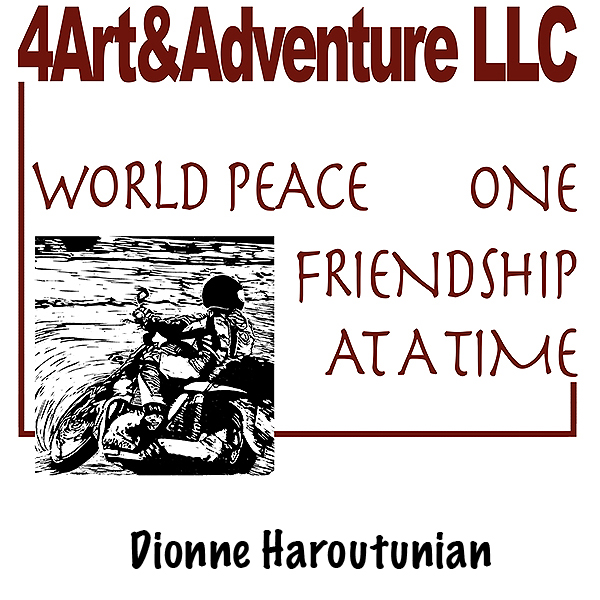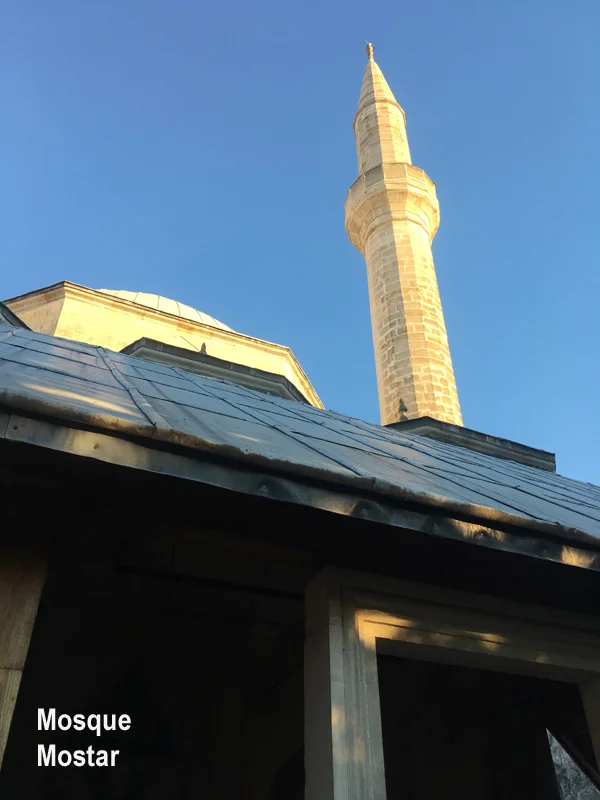La version française est en cours de traduction. Merci de votre patience.
I’m sitting on a patio, in the midst of beautiful flowers, having great conversations with a group of 30 year olds while enjoying a delicious breakfast. I am in awe: I AM IN MOSTAR! On April 25 my friend Jane said go to Mostar, find Majda and her brother Bata: they give a ten-hour tour on what really happened during the Bosnian War. I have been waiting impatiently for this moment.
Majda radiates Calm. Peace. She is gentle soft-spoken caring thoughtful. Although she never stops moving – there is a lot of work – her movements are deliberate and serene. She is the benevolent Queen of Majda Hostel. She works the myriad details necessary for making this the remarkable place that it is: overflowing with life, with happiness and love.
Life. Happiness. Love: the three ingredients that were violently taken away from her family with the onset of the 1992-1995 Bosnian War. To survive, Majda left for England as an au pair, where she spent four very lonely years in a constant state of fear and uncertainty; Bata left Mostar disguised as an ambulance patient and lived in Sweden for fourteen years; their parents took refuge in Norway.
A few years after the war, Majda and her parents moved back to Bosnia. On his way over for a visit, Bata meets some backpackers on the plane and brings them home and the family takes care of them. That’s when a plan is hatched: they will turn one room in their home into a guest room. Although Bosnia is fresh out of the war and still in a complete state of disarray, there are people, much to the family’s surprise, who want to come and understand what happened. The world had let Mostar down: it simply watched and listened without making a move.
Over time, one room turns into two. Then three. Pretty soon the family lives in one room and the house becomes a youth hostel. Mom works hard alongside her children. Majda says the Guesthouse became her salvation. It brought meaning back into her life and with it, the chance to share both her country’s recent pain and its extensive culture. Bata takes guests on tours and gives them the “straight story.” For the past eleven years, every morning as the next group gathers, Majda shares her story and that of her family. She shows her friend’s video clip of their beloved Stari Most (old bridge), affectionately nicknamed “grandpa,” being bombed in 1995 by the Croats.
I am spellbound. Each word falls inside of me like a tiny piece of lead. Why didn’t the world do something? And what was I doing in 1992? I was reading the papers: what did I think? Did I simply turn the page? Did I cry? How can this happen — again?
Over the years this Bosniak family has educated thousands of people and sent them back into the world with a deep understanding of Bosnia, past and present, and their culture. They have gifted each single one of us with something rare and infinitely precious: a glimpse behind the curtain that separates a visitor from a local; a “guest” from a friend.
If you enjoyed this post and would like to become a part of the worldwide community I am building, you can join a long list of supporters and purchase a piece of art. A heartfelt thank you to all of you who have chosen to support my project and “come with me” over the years.

![04_3602[w].jpg](https://images.squarespace-cdn.com/content/v1/5ab7eb8931d4df2d435dd0eb/1529450309326-VS8PJFXXJBJ07C6KYMK8/04_3602%5Bw%5D.jpg)

